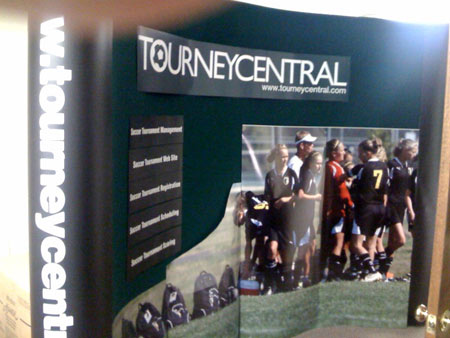As we watch the questions that come in from guest teams and track trending patterns from team applications, we’re noticing a few trends forming that we think soccer tournament directors should be aware of. Some of the behaviors are based on the economy and some just based on cultural shifts overall. All will affect the way you manage and market your soccer tournament.
Late applications
With the expectation of online registration, many teams are waiting until the last week or so to apply to the tournament, especially those that require full payment up front with the application. While this affects planning and can create anxiety not knowing which teams are coming, quality soccer tournaments need not worry as your tournament has been on the team’s calendar.
Early bird discounts don’t work but perhaps scheduling preferences or coaching conflict resolution guarantees for teams that apply early might be more of an incentive.
Also, if you have a high percentage of teams that travel in, check your hotel reservations. Teams may not necessarily apply early, but many will book rooms early.
No early morning Saturdays
To save money, teams are trying not to stay at hotels on Friday night, instead opting to drive in that morning. Most wait until they have been accepted and send an email, saying “oh, by the way, we need a late Saturday start….” We have no resolution for this as most tournaments have to play two games per team on Saturday to fit in a third round and championship games on Sunday. State associations have rules against playing more than two games per day and the math just doesn’t work. You can’t create more fields and you can’t make more daylight. Moreover, the coach and parents should recognize the dangers of playing a team that is not well-rested. You may want to point that out to him/her or even deny them admission due to increased liability for the tournament.
Multiple team coaches, no conflicts
A few years back, it used to be that only a handful of coaches had multiple teams. Now, it seems every club is doing this. Many teams will wait until you have accepted them and THEN tell you their coach is coaching multiple teams. (Many of these coaches also are requesting all their games start later on Saturday, a double whammy.) Again, the math just doesn’t work.
Our advice: You need teams to hold a tournament, but you can’t have teams dictate the terms under which they will play. Spell out the terms of acceptance UP FRONT on your application form by telling the teams the tournament starts at 8:00am on Saturday and finishes after the last championship game is played on Sunday. If they can not commit to being available for the entire time, they need to apply elsewhere.
Also, coaches conflicts are theirs to resolve, not the tournament’s. While most tournaments will do what they can to avoid conflicts, the sheer number of coaches with multiple teams almost guarantees somebody will be unhappy.
You may also want to establish “convenience fees” for teams requesting special treatment. For example, no coaching conflicts; $300/team. Late Saturday start; $450/team. Publish these early, confirm on application with an email.
Remember, the teams are applying into YOUR soccer tournament because the tournament is a good fit for their team, not the other way around. If your product does not meet their expectations, there are enough soccer tournaments now that will — for a while until they can no longer accommodate the demands. Just make sure your tournament maintains its high standards you worked hard to achieve and all teams play by the same set of rules.
